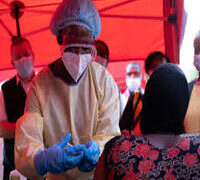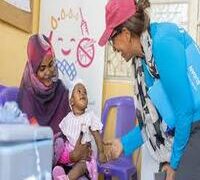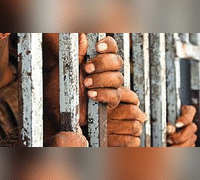The Chief Executive Officer of Chekker Health, Victor Emaye, has said up to 30 per cent of Nigerians will experience a mental health condition in their lifetime.
Emaye, who made this known during the second annual Mindsplace Awakening Summit, emphasised the growing importance of digital peer support networks in helping individuals navigate mental health struggles through shared experiences.
PUNCH Online reports that Mental health remains one of the most misunderstood and under-addressed public health challenges in Nigeria.
Depression, anxiety, substance abuse, trauma, and bipolar disorders are increasingly prevalent, yet few people seek or receive adequate care.
According to the World Health Organisation, about one in four Nigerians — nearly 50 million people — suffer from some form of mental illness. Shockingly, less than 10 per cent receive any form of treatment.
According to a statement signed by Mindsplace, organisers of the summit on Wednesday, the event was held virtually in alignment with World Mental Health Day and the global Mental Health Awareness Month.
Themed “UNITE25: Communities Supporting Wellbeing in Crisis and Beyond,” the summit attracted nearly 2,000 participants from across Nigeria and beyond, showcasing how technology can catalyse mental health awareness and community resilience.
Up to 30 per cent of Nigerians will suffer from one form of mental health condition during their lifetime.
“When you share an experience and someone says, ‘I was there, this is how I felt, and this is what I did,’ it can be empowering,” Emaye said.
He highlighted how digital communities can provide strength and solidarity for those dealing with psychological distress.
The discussions centred on building resilient, compassionate, and connected communities.
Among the speakers were mental health advocate Mary Ayuba, and public relations expert and author of The Unfettered Woman, Efe Obiomah.
Ayuba addressed the stigma surrounding mental illness, calling attention to its invisible nature and the harmful stereotypes often reinforced by the media.
“Most mental health challenges are not seen on the surface. You see people who look very well, who seem like they have no issues, but are dealing with big mental health challenges,” she said.
She noted that stigma delays recovery, adding that “collective healing fosters collective strength.”
In her remarks, Obiomah examined the complex role of religion in mental health, noting that while faith communities often serve as vital support systems, they must also be guided by compassion and understanding.
“Faith, hope, and love are cornerstones of the Christian faith, not fear, shame, condemnation or discouragement, which are often roots of mental health challenges,” she said.
She also advocated for storytelling as a powerful tool for healing.
Summit convener, Eniola Bello, urged Nigerians to adopt accurate language when discussing mental health to promote understanding and access to the right support.
“There are four levels of mental health: well-being (no distress, positive functioning), mental distress (common stress), mental health problems (significant functional impairment), and mental illness (severe, persistent functional impairment). It is important to use the right language so you can receive appropriate support,” she explained.
The event concluded with a panel discussion moderated by Modupe Ogungbe, where experts and participants explored strategies for building sustainable mental health ecosystems in Nigeria.
PUNCH NEWS.





































